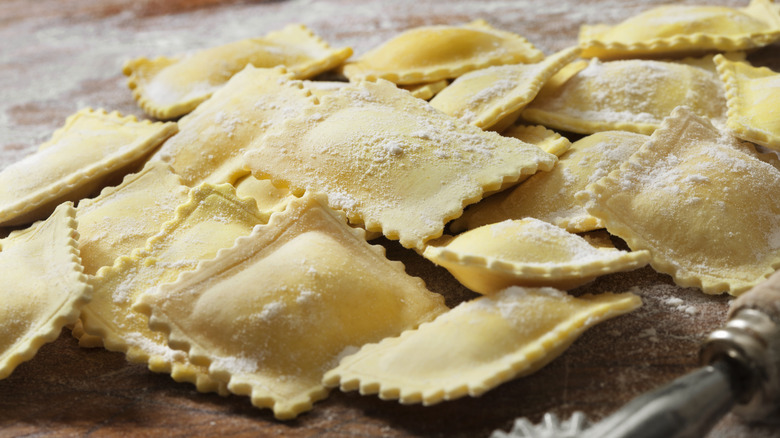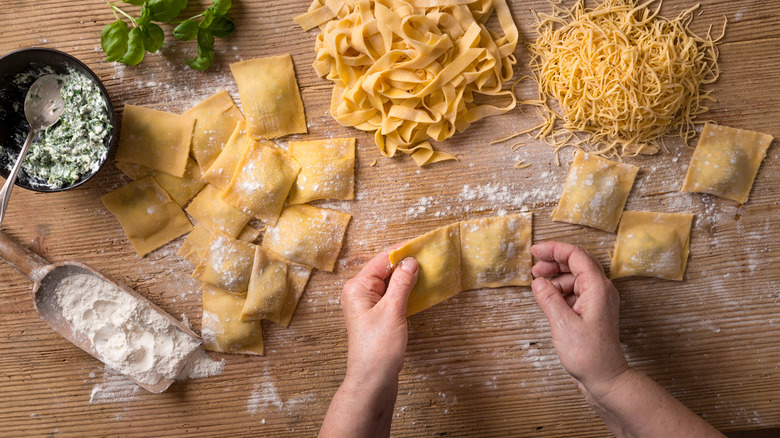Why It Pays To Make Fresh Ravioli Instead Of Buying Premade
There is just something about homemade ravioli that puts it in a league above the pre-made stuff. Getting the dough ready, rolling it out, filling, shaping, and sealing these flavorful little pockets may be a chore; however, being creative and approaching the process with joy is always worth the effort — and the results speak for themselves.
More often than not, ravioli dough tends to be an overlooked component, but it is just as important to a ravioli's success as the filling is. Pre-made ravioli dough tends to be overly thick, leading to an undercooked and overly chewy texture. They aren't tender or flavorful in the way fresh, handmade pasta dough is.
The brilliant thing about making your own ravioli at home is that you control both the dough and the filling. You can make pasta that is supple, textured, and stuffed with creative and satisfying ingredients that pack a punch. And while you may have more freedom to create when you develop your own, there are still a few basic ravioli rules you need to follow in order to make a successful batch.
Basic rules for great homemade ravioli
First and foremost, you want to get the pasta thickness right. Finding the right balance where the pasta dough is thin enough to be malleable but sturdy enough to hold filling can be challenging. A good rule to follow is if you hold your pasta sheet up to the light and see the shadow of your hand pass behind it, that's the proper thickness you want. A dough that is too thick may risk being undercooked and reminiscent of the pre-made dough.
Another thing to be aware of is that the filling shouldn't contain too much liquid. The moisture inside can compromise the integrity of the ravioli structure, as it is likely to boil along with the pasta water and break the ravioli apart from the inside. You want a drier filling that has a thick texture and is tightly packed and well-sealed. You can achieve a good seal on the pasta with anything from your fingers and a fork to a ravioli stamp or mold.
Another advantage to fresh ravioli is that they only need about five minutes to cook. Don't feel rushed to cook them right away, however — you can store them for up to six months in the freezer with a good, airtight container. In the end, freezing is going to put them to far more economical use than buying packages of the pre-made kind.

